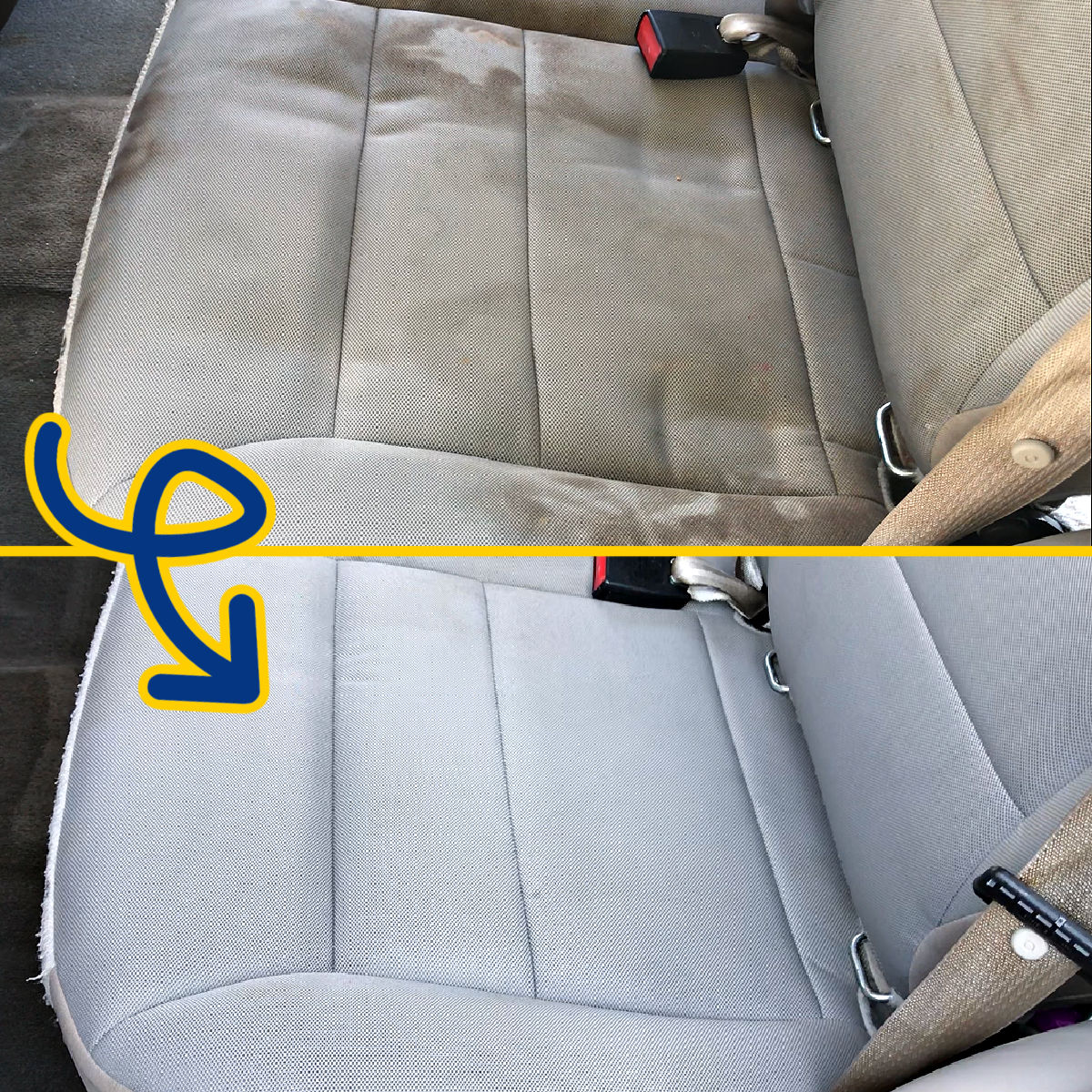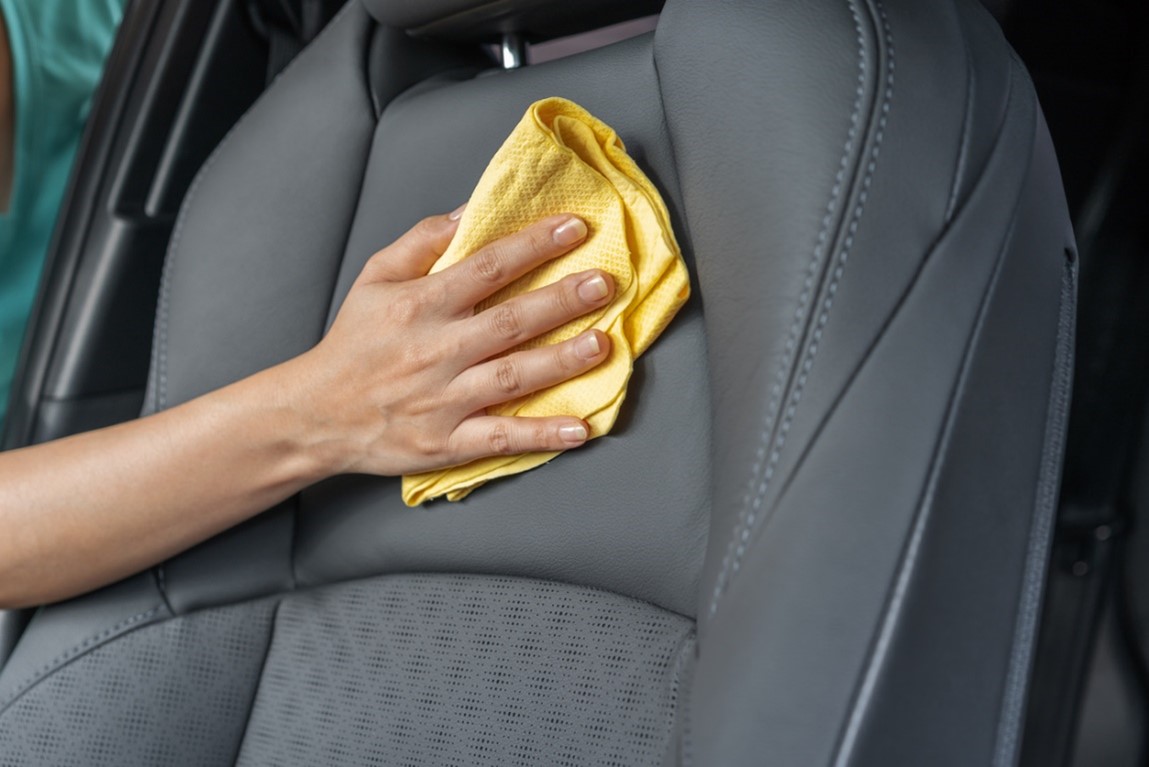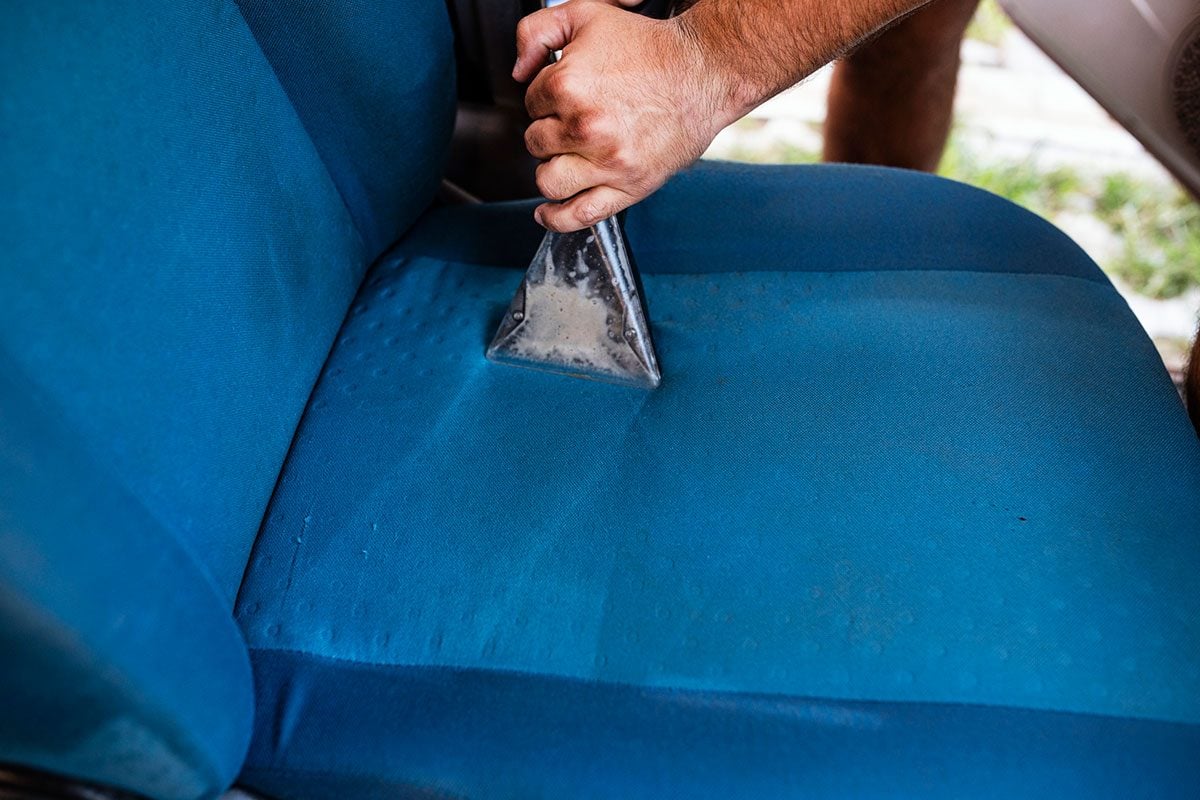Clean Car Interior Fabric Seats Naturally: 7 DIY Methods That Actually Work
Clean Car Interior Fabric Seats Naturally: 7 DIY Methods That Actually Work

Table of Contents
Why Choose Natural Methods for Car Seat Cleaning
Natural cleaning methods offer numerous advantages over commercial chemical cleaners. They're safer for your family, pets, and the environment while being significantly more cost-effective. Most importantly, natural ingredients like baking soda and vinegar are gentle on fabric fibers, preventing damage that harsh chemicals can cause to your car's upholstery.
Additionally, natural cleaners don't leave behind toxic residues that can cause skin irritation or respiratory issues, making them particularly important for vehicles where children spend time.
Essential Natural Cleaning Supplies
Before starting your natural car seat cleaning project, gather these common household items:
- Baking soda - Natural deodorizer and stain lifter
- White vinegar - Breaks down stains and eliminates odors
- Liquid dish soap - Gentle surfactant for lifting dirt
- Warm water - Activates cleaning ingredients
- Spray bottles - For even application of solutions
- Soft-bristled brush or old toothbrush - For gentle scrubbing
- Microfiber cloths - For wiping and absorbing moisture
- Vacuum cleaner - For initial debris removal

Preparation Steps
Step 1: Remove Loose Debris
Start by removing any trash, personal items, and loose debris from your car seats. Check seat crevices and pockets thoroughly.
Step 2: Vacuum Thoroughly
Use a vacuum with upholstery attachments to remove surface dirt, crumbs, and pet hair. Pay special attention to seams and crevices where debris accumulates.
Step 3: Identify Fabric Type
Check your car manual or manufacturer website to identify whether you have nylon, polyester, or microfiber upholstery. This helps determine the best cleaning approach.
:max_bytes(150000):strip_icc()/how-to-clean-cloth-car-seats-4693504-01-B-550a4fe9d4a340b2b13b276ac06af6c8.jpg)
7 Effective Natural Cleaning Methods
Method 1: Basic Baking Soda Treatment
Best for: General cleaning and odor removal
- Mix 2 parts baking soda with 1 part water to create a paste
- Apply paste to stained areas using a soft brush
- Let sit for 30 minutes to penetrate stains
- Scrub gently in circular motions
- Wipe clean with damp microfiber cloth
- Allow to air dry completely
Method 2: Vinegar and Dish Soap Solution
Best for: Tough stains and general deep cleaning
- Mix 1 cup warm water, 1/4 cup white vinegar, and 1 tablespoon dish soap
- Pour mixture into spray bottle and shake well
- Spray solution evenly across seat surface
- Work in with soft-bristled brush
- Let solution sit for 15 minutes
- Blot with clean, damp cloth to remove residue
Method 3: Club Soda Spot Treatment
Best for: Fresh stains and spills
- Pour club soda directly onto stain immediately after it occurs
- Blot with clean cloth, don't rub
- Continue blotting until stain lifts
- Allow area to air dry
Method 4: Steam Cleaning with Vinegar
Best for: Deep sanitization
- Add 1/2 cup white vinegar to steam cleaner water tank
- Steam clean seats following manufacturer instructions
- Work in small sections for best results
- Allow extra drying time due to moisture
Method 5: Baby Wipe Quick Clean
Best for: Light maintenance and spot cleaning
- Use unscented baby wipes for gentle cleaning
- Wipe seats in one direction to avoid streaking
- Perfect for regular maintenance between deep cleans
- Safe for sensitive skin and children
Method 6: Overnight Odor Elimination
Best for: Persistent odors
- Place two bowls of white vinegar in your car overnight
- One on dashboard, one on back seat
- Close all windows and doors
- Remove bowls in morning and air out car
- Vinegar absorbs odors without masking them
Method 7: Hydrogen Peroxide for Organic Stains
Best for: Blood, sweat, and protein-based stains
- Mix 1 part 3% hydrogen peroxide with 2 parts water
- Test in inconspicuous area first
- Apply to stain and let bubble for 5 minutes
- Blot with clean cloth
- Rinse with clean water and dry thoroughly

Prevention and Maintenance Tips
Weekly Maintenance
- Vacuum seats weekly to prevent dirt buildup
- Address spills immediately to prevent staining
- Use seat covers during messy activities
- Keep baby wipes handy for quick cleanups
Monthly Deep Cleaning
- Perform thorough vacuum including crevices
- Apply natural cleaning solution to entire seat surface
- Focus on high-wear areas like seat edges
- Ensure complete drying before regular use
Seasonal Protection
- Apply fabric protector spray after deep cleaning
- Use sunshades to prevent UV damage and fading
- Consider seat covers during harsh weather seasons
- Maintain consistent car interior temperature when possible
Troubleshooting Common Issues
| Problem | Natural Solution | Prevention |
|---|---|---|
| Water stains after cleaning | Blot with dry cloth, use fan for faster drying | Don't oversaturate, work in small sections |
| Lingering odors | Sprinkle baking soda, vacuum after 24 hours | Address spills immediately, maintain ventilation |
| Stubborn grease stains | Dish soap paste, let sit 1 hour before cleaning | Use napkins when eating, avoid oily foods in car |

Frequently Asked Questions
How often should I clean my car's fabric seats naturally?
For regular maintenance, vacuum weekly and spot-clean spills immediately. Perform a thorough natural deep cleaning monthly or whenever seats appear visibly soiled. High-use vehicles or those with pets may require more frequent cleaning.
Can natural methods remove all types of stains?
Natural methods are highly effective for most common stains including food, drinks, mud, and bodily fluids. However, set-in stains or certain dyes may require multiple treatments. For best results, treat stains as soon as possible after they occur.
Will vinegar damage my car's fabric seats?
White vinegar is safe for most automotive fabrics when properly diluted. Always test in an inconspicuous area first. Avoid using vinegar on leather or suede materials. The vinegar smell dissipates quickly with proper ventilation.
How long do fabric seats take to dry after natural cleaning?
Drying time varies based on humidity, temperature, and cleaning method used. Typically, seats dry within 2-4 hours. Speed up drying by parking in sunny locations, using fans, or leaving windows slightly open for ventilation.
Are natural cleaning methods safe for children and pets?
Yes, natural cleaning methods using ingredients like baking soda, vinegar, and mild dish soap are much safer than chemical cleaners. They don't leave toxic residues and are non-irritating when properly diluted. Always ensure complete drying before use.
Cost-Effective Natural Cleaning
Natural cleaning methods can save significant money compared to professional services or commercial products. A typical natural cleaning session costs under $5 in materials, while commercial cleaners can cost $15-30 per bottle. Professional detailing services often charge $50-150 for interior cleaning.
Final Recommendations
Natural cleaning methods provide an effective, safe, and economical approach to maintaining your car's fabric seats. The key to success lies in regular maintenance, immediate stain treatment, and using the right natural ingredients for specific cleaning challenges.
Start with weekly vacuuming and progress to monthly deep cleaning using the baking soda and vinegar methods outlined above. Remember that prevention through seat covers and immediate spill cleanup is always more effective than treating set-in stains.
For best results, always test cleaning solutions in inconspicuous areas first, work in small sections, and ensure complete drying before regular use. With consistent natural cleaning practices, your car's fabric seats will remain fresh, clean, and odor-free for years to come.